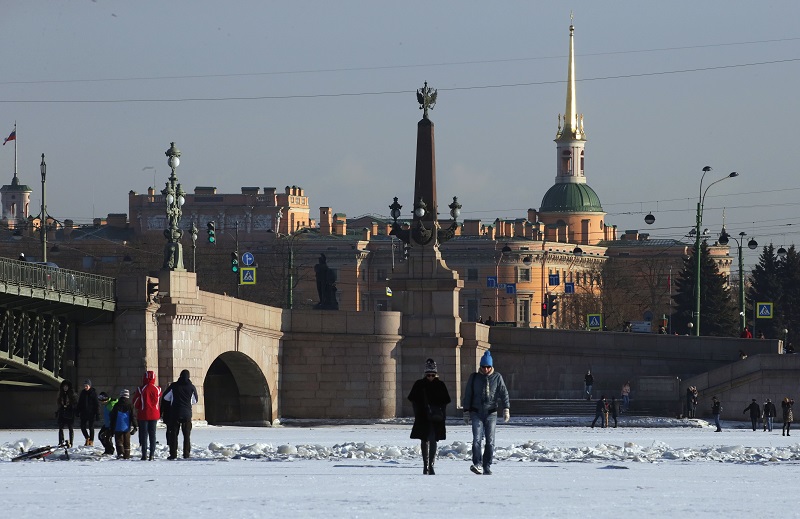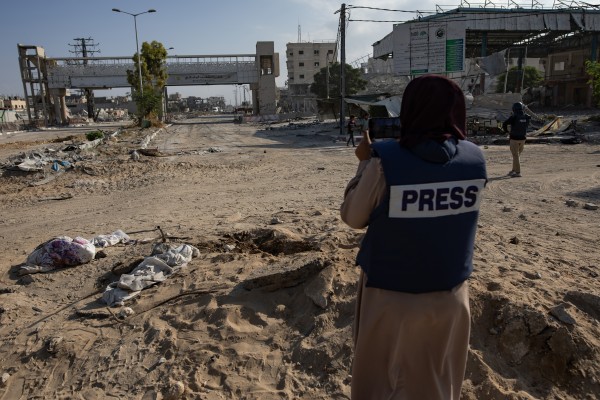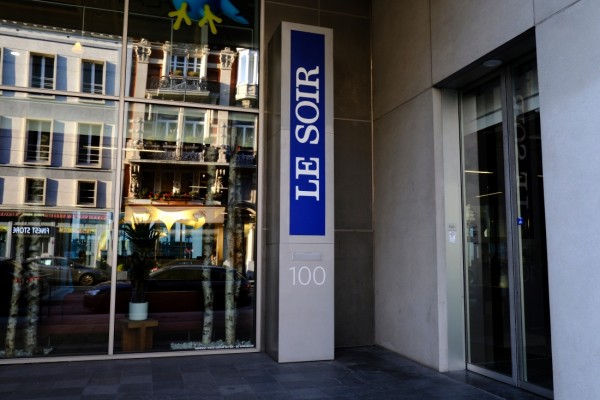Coincidentally, only a few hours after a terrorist attack hit St. Petersburg, Russia on April 3, the International Press Institute (IPI) joined the Helsingin Sanomat Foundation to hold an expert panel discussion in Helsinki on “Press Freedom and Journalism in St. Petersburg”.
Bringing together Russian journalists working for news organisations in St. Petersburg and Moscow, long-time foreign correspondents and Russia experts from Finland and Sweden, and academics, the panel analysed the specific conditions for media and journalism in St. Petersburg, comparing it to Moscow, as well as specific challenges that journalists experience in pursuing their profession.
Opening the debate, moderator Kari Huhta, diplomatic editor of the Helsingin Sanomat daily, noted how restrictions on press freedom have changed in the past two decades, from overt censorship to more covert methods of controlling information.
“Instead of forbidding journalism, dictators and repressive governments today take control over news media,” Huhta said.
Reiterating Huhta’s point, Irina Pankratova, news editor and investigative journalist for the newspaper Delovoy Peterburg, noted that while there is no official censorship in place anymore, other, subtler, methods are used.
One primary means is the courts. Pankratova said that, in her experience, legal pressure is the greatest concern for journalists, as the risk of high fines or being caught up in expensive legal proceedings threaten the survival of smaller, independent news organisations. Overly restrictive laws combined with occasional scarce independence of the judiciary, have turned the courts in effective tools for self-censorship.
The use of trolls to disseminate negative commentaries about journalists and their news coverage, as well as insults against them, are also highly problematic, as they undermine audiences’ trust in independent journalism. Lacking the support of society, independent media outlets and journalists find themselves increasingly vulnerable to all sorts of attacks.
Direct threats and physical attacks still occur and Pankratova herself has been a victim of threats in reaction to her investigations. However, in her opinion, they are less concerning than legal harassment and the loss of credibility generated by frequent online attacks.
Speaking about the weakness of independent journalism in Russia, Artem Filatov, a St. Petersburg-based political journalist for the radio station Echo of Moscow, commented that “journalism in Russia is not the fourth estate, it has limited power”. He said that things have been getting worse in recent years and that, today, no independent television channel exists in St. Petersburg.
“Ten years ago, journalists could still influence reality,” he said. “Today, we see no public reaction after the findings of an investigation are revealed.”
This is indeed an element of immense frustration for investigative journalists, in Russia and elsewhere. They spend weeks, even months, investigating stories of official corruption and wrongdoing, with the expectation that revealing such facts through the news media will lead to public outrage and the eventual prosecution of the perpetrators. But the number of journalistic investigations that bring about actual change is extremely low in St. Petersburg, as in many other places. In the great majority of cases, there is little to no public reaction.
Explaining the limited ability of independent news coverage to influence reality, Malcolm Dixelius, a former Moscow correspondent for Swedish Public television and today a documentary filmmaker, recalled the theory of “repressive tolerance”, whereby “you allow a diversity of opinions and information to be published, but make sure that nobody believes in them”. Through state propaganda, journalism is not perceived as the dissemination of accurately researched facts, but rather presented as nothing more than “somebody’s opinion”.
But even repressive tolerance has limits. Filatov noted that as long as an independent news organisation is sufficiently small, it will be allowed to operate almost undisturbed. But as soon as a journalist or a media outlet gains in public recognition and visibility, “the authorities will be more likely to intervene”.
Foreign correspondents operating in Russia are certainly under lesser pressure than their Russian colleagues, but obstacles are nevertheless immense. In the opinion of Arja Paananen, special correspondent and Russia expert for Ilta-Sanomat, one of the primary obstacles is the lack of direct access to high-level officials.
“Foreign journalists are often treated with suspicion, as if they were spies or ‘Russophobes’,” she pointed out. “All press conferences are carefully orchestrated and ‘spontaneous questions’ are not permitted”.
Not only are Russian journalists required to submit their questions ahead of a press conference, but foreign journalists, too.
“What can international organisations do to support you and support independent, quality journalism in St. Petersburg?” Helsingin Sanomat Senior Editor-in-Chief and IPI Executive Board Member Kaius Niemi asked. Financial pressure is one of the biggest concerns for independent media across Russia, and legislation passed in 2014 barring foreign investors from holding more than a 20 percent stake in Russian media outlets has only made the situation worse.
Today there is a degree of commercial interest in independent media outlets based in Moscow, which struggle but can still find investors and advertisers. The situation is far worse in St. Petersburg, where there seems to be little to no interest from the market in supporting critical media organisations.
“Cooperation between Russian and foreign journalists in the production and publication of investigative reports has proven very successful in raising awareness about the situation in Russia”, panellists argued, pointing to an example of cooperation between a group of Russian and Norwegian journalists.
It is also less risky for Russian journalists to re-publish news that has already been published abroad. Therefore critical, independent coverage of events in Russia by foreign news organisations is greatly helpful.
Finally, the Russian journalists on the panel urged the audience to not be led to believe that international criticism does not bother the Russian government. The discussion ended with a call to put pressure on foreign ministers across Europe to remind their Russian counterpart as part of bilateral relations that Russia, too, has an obligation to respect press freedom.



